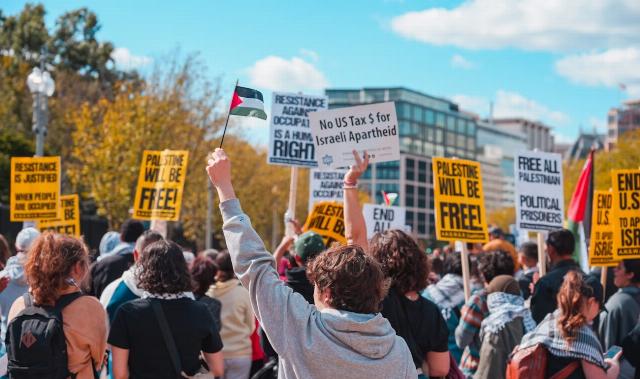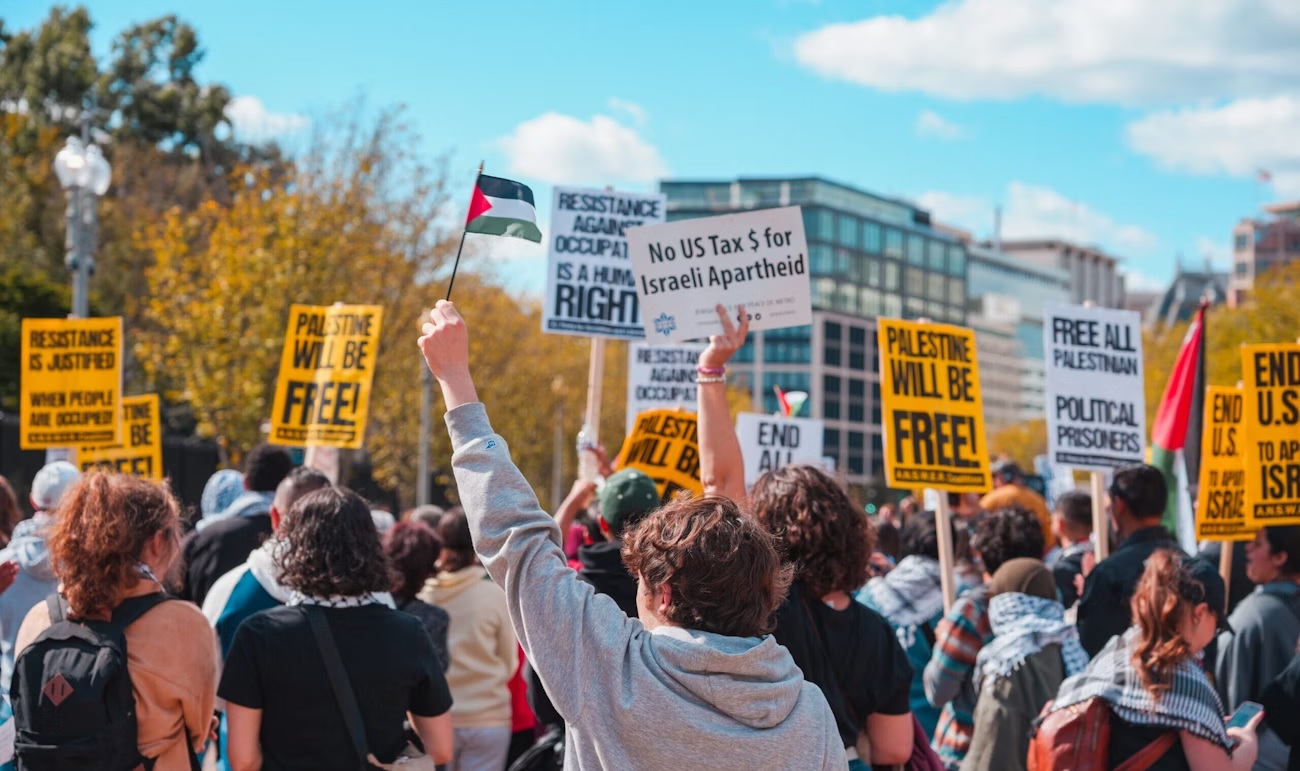

Ted Eytan
What makes the institutionalization of postcolonial theory so dangerous is its move from a small band of Ivory Tower intellectuals to the impressionable minds of young, self-proclaimed activists.Next month, October 7, will mark the first anniversary of Hamas’ surprise attack on Israel, in which over 1,100 Israelis — mostly civilians — were ruthlessly murdered in their homes.
The chaotic political fallout that ensued afterward would involve the occupation of college campuses across the United States by protesters denouncing Zionism and colonialism, as well as the declaration that Israel was somehow an “apartheid state,” despite that definitionally not being the case.
Any mourning for the victims of Hamas’ attack was quickly drowned out by extremist American college students some 6,000 miles away who arrogantly believe a handful of social theories aimed at “decolonization” can adequately explain and remedy a conflict that has been raging for over a century. As of the time of this writing, protests have resumed at Columbia University following the beginning of the fall semester, demanding that the university divest from Israel due to its ongoing war efforts in Gaza.
Following the attack, social media feeds were quickly inundated with Instagram infographic posts from pro-Palestine propaganda accounts that deliberately oversimplified and omitted factual information crucial for contextualizing the conflict. This of course prompted the vast majority of the conservative intelligentsia to go full “debate bro” on the subject, resulting in long, winding debates about who first inhabited the region we now call Israel and Palestine, who attacked first, various contested definitions of the word “genocide,” and so on.
The mainstream conservative effort to counter the activist rhetoric, however — no matter how rigorous or well-informed — was futile. Despite both sides’ adamant referrals to the “history” of the conflict, very little attention was paid, beyond merely in passing, to the ideological and theoretical underpinnings of the pro-Palestine side, which, upon further examination, helps to uncover the political pathology of left-wing anti-colonial activism.
The Left’s relentless insistence that Israel is a colonial power hell-bent on oppressing and genociding innocent Palestinians is instructive because it reveals its broader commitment to deconstructing anything Western or West-adjacent in the name of emancipating the victims of European colonization. The activist rhetoric at various American universities in particular owes its intellectual ancestry to postcolonial theory, a distinctly postmodern outgrowth of critical theory that applies the usual social and cultural constructivism of left-wing theorizing to European colonization.
Helen Pluckrose and James Lindsay in their book Cynical Theories: How Activist Scholarship Made Everything About Race, Gender, and Identity — and Why This Harms Everybody, trace the origins of current postcolonial theory to Palestinian-American philosopher and Columbia professor Edward Said, the so-called “father” of postcolonial theory (the authors also note the influence of earlier intellectuals like the Afro-Caribbean philosopher Frantz Fanon, who, while lacking the postmodern attitude of later theorists, nevertheless inspired Said by his examination of the psychological impacts of the subjugation of native cultures and languages brought on by European colonialism).
<img alt captext="Ted Eytan” class=”post-image-right” src=”https://conservativenewsbriefing.com/wp-content/uploads/2024/09/the-political-pathology-of-palestinian-liberation.jpg” width=”450″>In his book Orientalism, published in 1979, Said laid the intellectual foundations of postcolonial theory and specifically drew upon the postmodern knowledge and political principles as put forward by Michel Foucault. The knowledge principle essentially holds that there is no such thing as objective knowledge, but rather that knowledge is merely a set of socially constructed “discourses” inherent to any society, as well as the postmodern political principle, which holds that society is nothing more than a series of socially constructed power structures that determine what can and cannot be known. “Orientalism,” i.e. the West’s cultural caricature of the East, Said argues, is legitimated by western discourses, which justifies colonialism by that particular conception of knowledge.
Most notable here is the ideological obsession with power, or the broad postulation that all human suffering can be attributed to a series of socially constructed power structures that exist to elevate a certain group of people at the expense of others. This framework is evident in many other forms of left-wing theory, such as critical race theory, gender studies, and so on. It is regularly employed by activists in their efforts to subvert Western ways of thinking, which they believe to be systemically discriminatory and oppressive.
It is perhaps impossible to overstate how much influence Said’s work would have on future generations of postcolonial theorists in the academy, as well as the student activists who now knowingly or unknowingly espouse it. It is why we often see decolonization efforts at universities aimed at removing statues found to be offensive or racist, or the shift away from “Eurocentric” curricula in the humanities. It is why you have Palestinian activist organizations on college campuses proudly displaying propaganda art illustrating the infamous Hamas paragliders that were used on the October 7 attacks. It is why you have certain professors at Ivy League universities publicly saying that they found Hamas’ attack on Israel to be “exhilarating” and “energizing” at student rallies, or that Israel has a so-called “monopoly of violence.” How one seriously defines “monopoly” in this context has yet to be elaborated upon.
It is also why debates about the history of the conflict in an attempt to counter pro-Palestinian talking points are usually futile; not because those attempts are not based in truth, but because the activists and intellectuals espousing them often operate on an entirely different conception of knowledge, which holds that the western (or American) point of view of the conflict is merely a socially constructed discourse meant to uphold the oppressors’ (Israel) monopoly on power. It is therefore not at all surprising to see Palestinian activists commit to a historical revisionism that paints Palestine as the undisputed victim of a genocidal Jewish state (this also explains why the Left in general commits to historical revisionism in other cases, such as claiming that America was founded upon the first arrival of slaves in 1619).
What makes the institutionalization of postcolonial theory so dangerous is its widespread move from a small band of Ivory Tower intellectuals to the impressionable minds of young, self-proclaimed activists who seem prepared to act on what they believe in. Postcolonial theory initially expressed itself through performative university exercises — removing statues, mission statements, academic papers, and stolen land acknowledgments. It now expresses itself through a widespread willingness to absolve heinous crimes by radical Islamic terrorists in pursuit of the abstract goals of revolution and liberation.
Image: Ted Eytan






